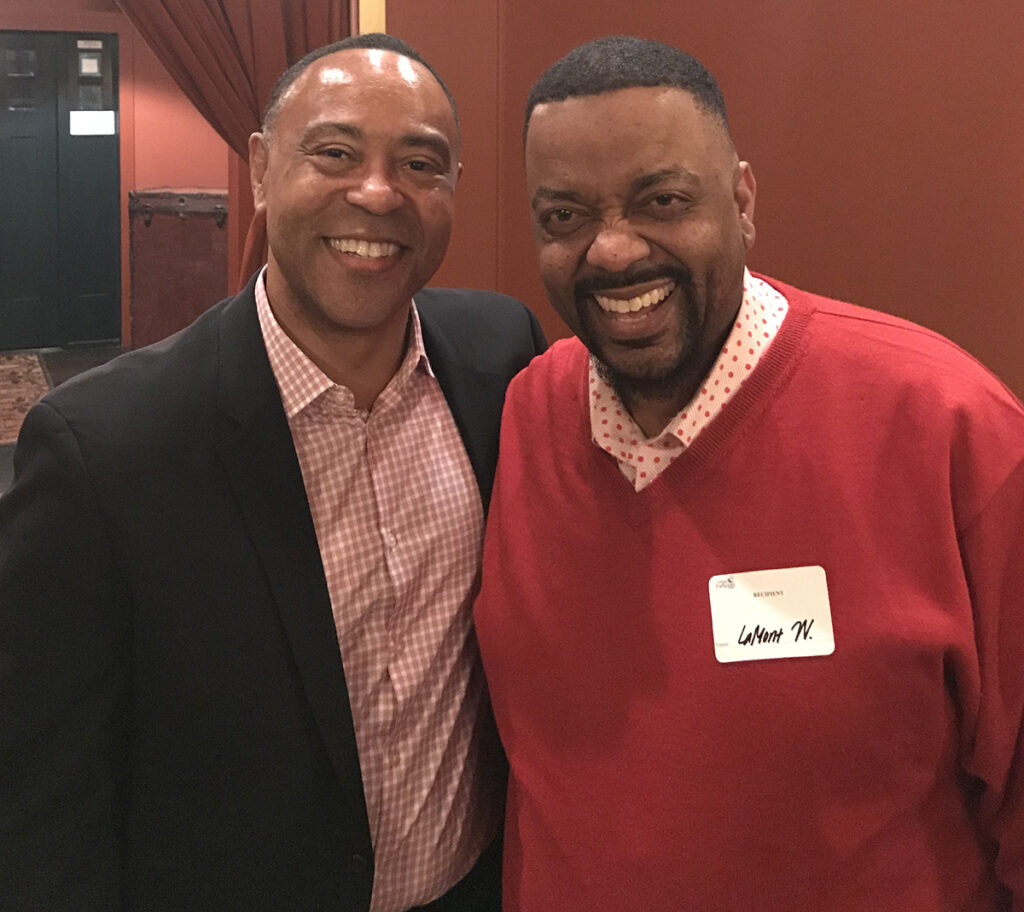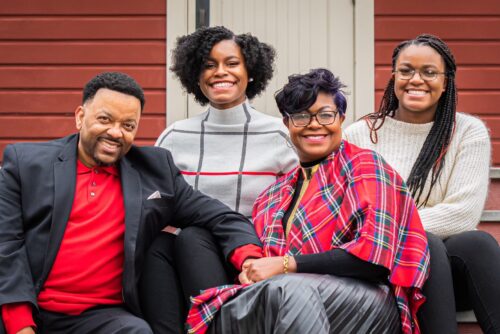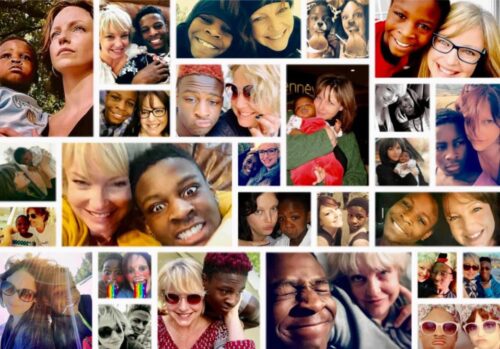LaMont Williams took his grandfather’s words of wisdom to heart and had his blood checked every six months to be on guard against the potential onset of diabetes, which runs in his family.
That habit saved his life.
“In 1998, I had my routine bloodwork run when my doctor saw something that was beyond his expertise,” LaMont recalls. “He sent me to a nephrologist, who did a biopsy and identified there was some kind of challenge with my kidney.”
Not wanting to leave anything to chance, LaMont sought a second opinion and received a diagnosis: he had kidney disease and would eventually need a kidney transplant.
“My situation deteriorated more rapidly than they anticipated, and I was soon on the waitlist,” he says. In 2001, the gift came from a deceased donor.
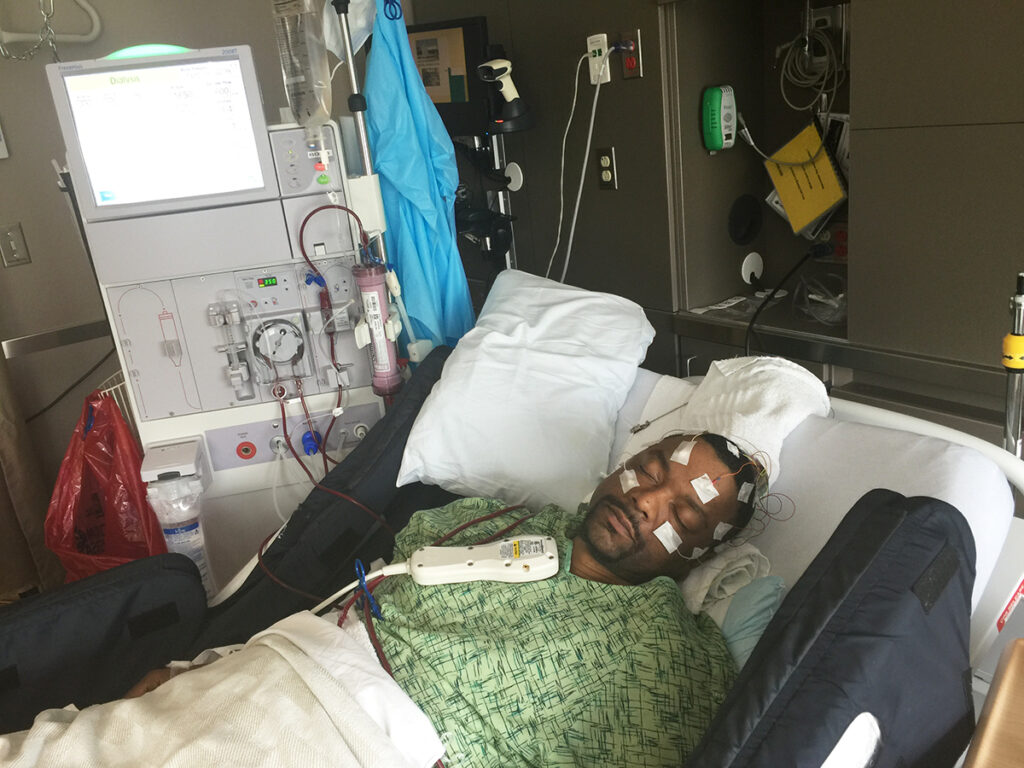
Life was in session when LaMont got the call
“It was a crazy time. My wife was pregnant and the baby was due in five days. I was in a meeting at work getting laid off when the pager went off and they told me they really had a kidney for me,” LaMont recalls. “I sent my wife to her parents. That night I went in for my transplant, and the next day, my wife had the baby.”
At that time, LaMont and his wife had different insurance, so they were at two separate hospitals in Portland. After LaMont’s surgery was deemed successful, his surgeon drove across town in his scrubs to a hospital where he didn’t have credentials, burst into the maternity ward, and — amid alarms and security hounding him — told LaMont’s wife that he was good and in recovery. It would be five days before LaMont could meet his baby girl.
The new kidney gave him renewed life, which was an amazing gift as his family grew and LaMont followed his calling as a pastor. In 2007, he moved to Seattle to lead a church.
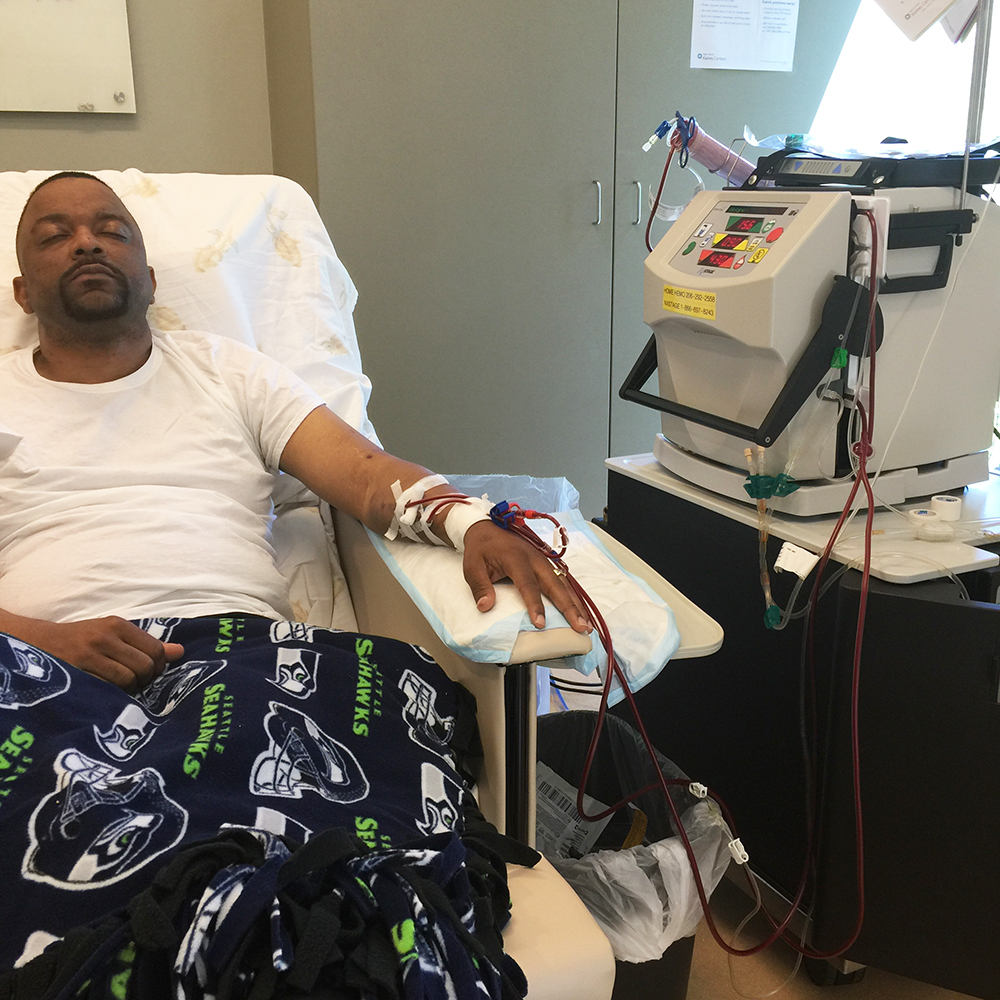
The new kidney worked well until about 2015, when LaMont began to feel tired and retain water. In early 2016, he was rushed to the emergency room for what he thought was asthma or pneumonia.
“It was a surprise to learn it was my kidney again, especially since I was being followed by a nephrologist,” LaMont reveals. “I was crying. I’d done everything right—I’d lost weight and played by the rules. I asked God why, and the only answer he gave me is ‘my grace is sufficient.’ That was not the answer I wanted.”
LaMont was told he would have to go on dialysis. “I was adamant that I didn’t want dialysis,” he shares. “They kindly told me that I didn’t have to go on dialysis — I could get palliative care. That made the answer quite clear.”
A second transplant was soon needed
“I asked my church to pray for me, but I didn’t want anyone to give me a kidney who knew me,” LaMont notes. “I didn’t want to be tied to obligation.”
But it’s funny how things unfold. In early 2017, a woman came with her son and her mother to meet LaMont, and she simply said: “I’m a match.”
LaMont didn’t immediately understand what she was saying. “For what,” he asked. “For you,” she replied.
The woman shared that she’d been tested and had talked to her family over the holidays. LaMont was the last person she was telling. Her decision was final.
Blown away, LaMont relented. However, as they were doing the workup for the transplant, it was discovered that his native kidney had cancer on it.
“They told me they were taking me off the transplant list,” he remembers. “They said they’d have to reduce my immune system to zero for the transplant and in doing so cancer would kill me. So, I told them to take the kidney.”
He had a nephrectomy and was heartened to learn that the cancer was only stage 1. Excited, he went in for a follow-up appointment and was told he was cancer free. But then they dropped the bomb: LaMont would have to wait for five years to receive a transplant.
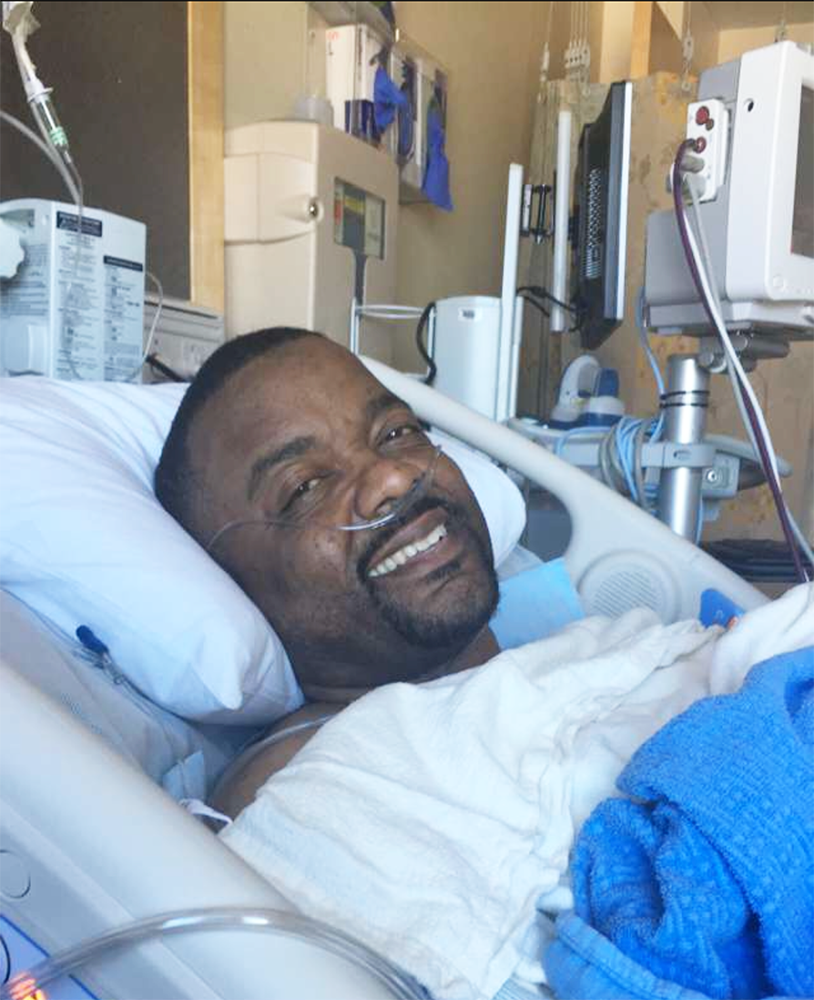
“I pleaded for my life,” LaMont shares. “I didn’t think I could live five more years on dialysis.”
Another month went by and LaMont returned for another follow-up appointment. He was delighted to learn that he was doing so well that they put him back on the transplant waitlist.
“By that summer, I had my second transplant,” LaMont says. “That lady at my church is my new sister. It’s a great thing and God is so good, and I’m so thankful to him and everyone who played a role.”
The biggest lesson LaMont has learned through his experience is that he cannot be afraid to fail.
“It’s in your failure that you learn something if you’re paying attention,” LaMont shares. “At the end of the day, I win or I learn. I never lose as long as I’m not afraid to fail.”
Now, LaMont’s mission is to educate anyone who will listen about the silent dangers of kidney disease. “You can be a walking disaster and get to the hospital too late,” he says.
“Everyone knows that October is breast cancer awareness month. Not everyone knows that March is Kidney Awareness Month,” he says. “I’m working to change this — to educate the end user. Our kidneys need more attention.”
